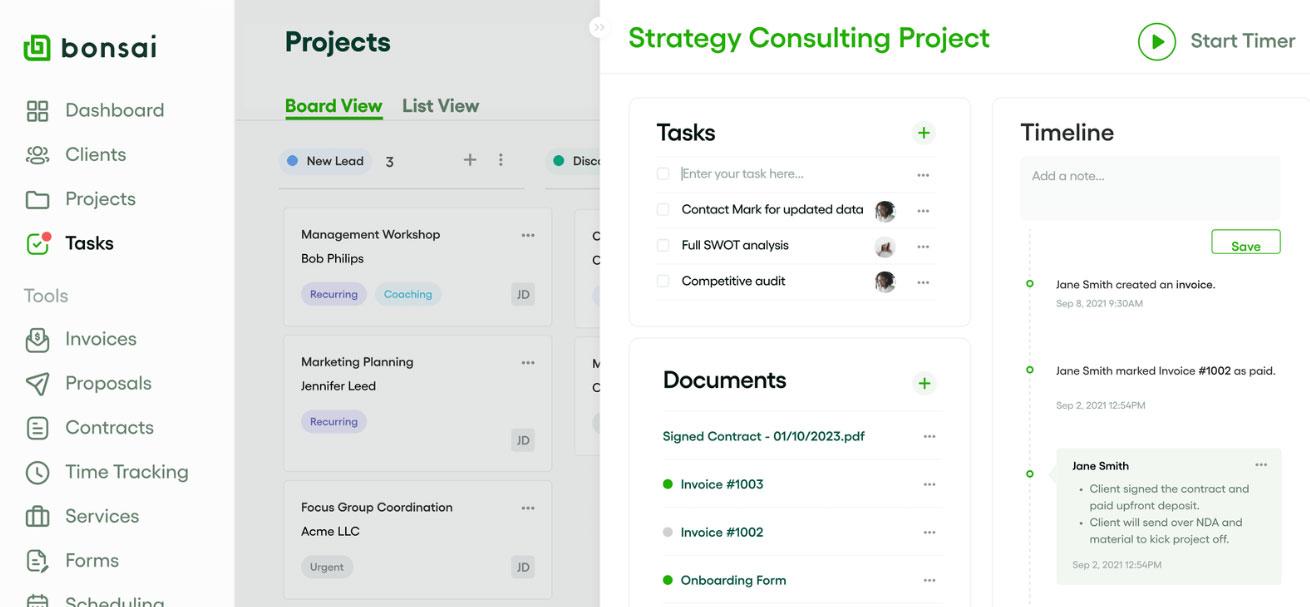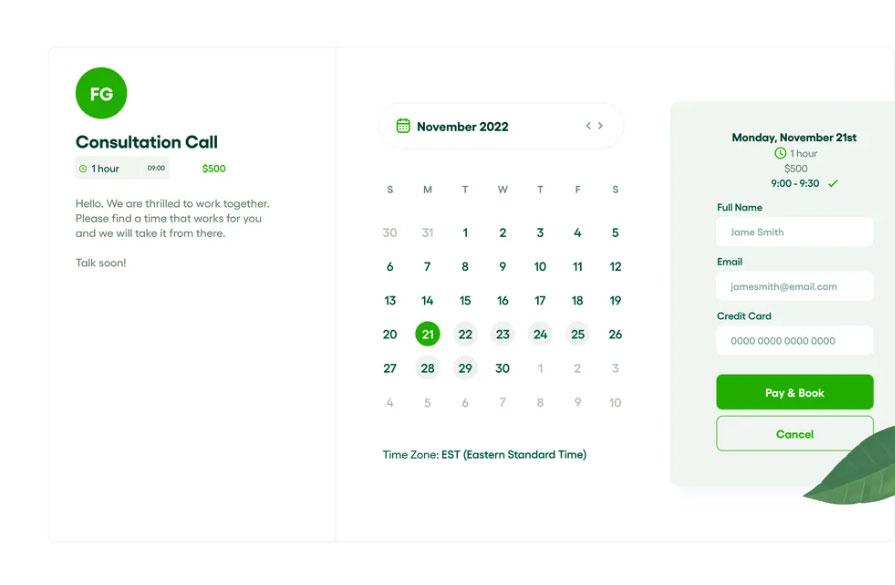An agency plan is a strategic blueprint for business growth, focusing on key areas like time management, lead generation, and client acquisition. Effective agency planning involves setting clear goals, choosing the right tools, and continuously refining strategies to adapt to market changes. Investing in a well-structured plan ensures long-term success by optimizing operations and enhancing client experiences. In 2026, agencies should leverage digital solutions for planning and focus on sustainable growth practices. By doing so, agencies can expand their client base and improve profitability, ensuring they remain competitive in the evolving market landscape.
No matter how small your agency is right now, you no doubt have big ambitions. Wanting your company to grow and expand its client base is a natural drive for business leaders. However, without thoughtful agency planning and strategy building, these ambitions can fall flat. From effective time management to lead generation strategies, there are so many factors that agencies must consider for long-term success.
Focusing on your strategy from the earliest stages of your agency’s creation helps build a strong foundation for growth. But don’t worry; even if you’re a well-established agency, there’s still time to improve your growth strategy using the following agency planning guide.
Reasons to invest in agency planning and strategizing
Not every agency journey starts with the best-laid plans. “Winging it” can feel quite satisfying, especially if you’re seeing success with that approach. You might have an excellent ad hoc method for dealing with clients. After all, you know your teams and your skills best. In the very early stages, it can seem perfectly normal to scribble contact details down in notepads and have multiple email chains about a project.
Once you grow beyond those first few clients, though, these methods become unsustainable. Suddenly, you don’t have access to a critical project asset because it was sent using someone else’s email account — and they’re out of the office. You want to do a follow-up call with your first client, but no one has their contact information. It’s easy to see that without clear strategies for handling multiple aspects of your business, it quickly spirals out of control.
An effective agency strategy impacts more than just administrative tasks and project management. Spending time on agency planning and building a growth-focused strategy offers the following benefits and more.
Client acquisition
Sourcing leads and closing deals is the top challenge facing agencies according to recent reports. At least 37% of marketing agencies, for example, say client acquisition is their biggest obstacle to growth. Without agency planning for lead generation, you’ll end up spending more time chasing clients than pleasing the ones you’ve already got. This can gouge budgets and leave nothing left for investing in resources you need to complete projects satisfactorily.
Consider the ways you closed deals with the clients you already have. Were they impressed with the services you offer and the level of support? Did they find your agency via online advertising?
Leaning into your successful demand-generation strategies can help you plan for the future. If you’ve had success finding leads on Facebook, you might want to invest more of your budget into social media marketing. If clients choose you after speaking to a sales rep, maybe you could expand your face-to-face sales teams and expand on soft skills training.
Building a strategy for your agency means deciding where to allocate funds and monitoring the success of those plans. It also means considering the right tools to support your lead generation approach.

Bonsai offers a range of templates that can help with the acquisition of clients, from proposals and quotes to feedback forms. If a client decides not to go with you, it’s helpful to understand why. You can use this information to drive process improvement or even adjust the services you offer. Recording both success and failure helps hone your strategy and encourages a focus on accountability.
Talent acquisition and retention
Acquiring clients is important, but so is having the right team on hand to serve them. Many agencies start out doing what they do because the founder has a passion for a particular offering. This could be web design, brand revamping, or interior design. Whatever drives you and whatever skills you have, one thing is certain: as your agency grows, you can’t do it all by yourself.
That’s why agency planning must involve effective recruitment strategies. An early stage of this might include onboarding a recruitment specialist to drive these plans forward. From here, you might consider:
- Average salaries per the market for your desired specialist.
- Benefits packages that will appeal to top talent, e.g., flexible hours, healthcare, etc.
- The channels you should utilize for posting jobs, e.g., LinkedIn, your agency’s website, or recruitment websites.
- The size of your budget versus the increased profitability a new hire could bring.
Maintaining an effective recruitment strategy helps solidify your agency as a great place to work. Take feedback from team members on what they love about their role and what could change. Find ways to invest in employee engagement and record how this drives your staff retention rates. You can even use satisfied employee stories to improve brand recognition, which positively feeds back into hiring more top talent.
Building a brand
Brand recognition is a critical aspect of agency growth. All agency strategies should include a brand messaging framework. This document details what you do, why you do it, and who you do it for. You can also include aspects of your company story or timeline. From here, you can start to create your company’s tone of voice and personality. Thread that throughout your entire marketing efforts to eventually make your content and advertising instantly recognizable.
To paraphrase marketing agency leader Stephen Gilbert, impactful brand marketing helps brands better differentiate themselves by building long-term value over quick wins. The best brands also resonate with clients on a deeper level. Leads are drawn to potential partners with similar values to them, so work your corporate ethics and standards throughout your brand messages.
Five strategies for agency business growth
Your overall agency planning and strategy goals should, ideally, be broken down into manageable chunks. Just like projects require a timeline and carefully allocated tasks, business strategies need well-defined goals and dedicated leaders. Marketing teams may look at improving branding and digital client engagement, while sales teams might handle more direct methods of lead generation. HR leaders manage ways to retain staff, supporting managers with improved engagement approaches.
While there are numerous strands in the overall web of continuous agency growth, the following five factors are vital to business continuity.
Provide employee training and development
Suppose you’re focusing on ways to attract top talent and keep them from leaving and heading to your competitors; consider training and upskilling. Studies show that:
- A reported 71% of employees get increased job satisfaction via learning and development.
- More than half (61%) say on-the-job learning encourages them to stay with an employer.
- Nearly half (48%) of employees reported they will actively consider leaving their jobs if they don’t receive continuous education or upskilling opportunities.
Training can be done on a peer-to-peer basis to eliminate the costs of outsourcing professionals. Agencies may also invest in computer-based learning via SaaS (Software as a Service) subscriptions.

Effective collaboration software can help you understand where skills gaps lie within your teams. Bonsai provides ways for all stakeholders to quickly view who is involved with a project and the task completion progress. If managers notice some tasks consistently going over the deadline, they can address these issues with the individuals concerned.
While some delays may be unavoidable, others could be due to not fully understanding particular systems and tools. Leaders can offer buddy or mentorship schemes to quickly fill skill gaps and consider longer-term training opportunities to improve the holistic capabilities of their workforce.
Research ideal customer profiles
Even with the best-trained staff in the business, you can’t reach your clients if you don’t really know who they are. Utilize market research to determine your target audience and create an Ideal Customer Profile or ICP.
An ICP is an imaginary customer that represents the qualities of your ideal client. You can use data such as age, position within a business, and pain points to narrow down your ICP. Marketing teams can then use this demographic data to target potential clients better with their campaign messages.
Your ICP doesn’t have to be static. Changes are inevitable as markets shift and consumer demands change. It’s also possible to create several different ICPs depending on the services you offer.
Offer relevant services
Once you’ve created your ICP, you can start to think about optimizing your services to really focus on the challenges faced by your target audience. Those services might be one suite of offerings or a list of individual products that clients can pick and choose from.
A creative agency, for example, might offer a list of digital design products, from logos to website optimization. However, a marketing agency might offer different bands of marketing support. They may present a basic package that covers social media only. To meet more client needs, they could also offer a premium package with a full-service, omnichannel marketing approach and a mid-range package.
Whatever your agency’s niche, it’s essential to consider whether the services your agency offers actually fix problems for your clients. Ultimately, this is what will differentiate you from your competitors. Clients will come to you and stay with you because you provide something they can’t get anywhere else or because you do what you do better than anyone else.
Create compelling content

You’ve figured out what your best products and services are and who you want to market them to. The next stage in agency planning is considering how to reach those potential clients. Calling every business that might be interested in your services can have a detrimental impact on your brand reputation. Instead, you can utilize the power of inbound marketing.
Inbound marketing is, as the name suggests, marketing that encourages clients to come to you. Examples of inbound marketing include:
- Content on your website
- Blogs
- Articles
- Videos
- Social media posts
- Whitepapers and other business resources
- Thought leadership content
Even gripping product descriptions can be considered inbound marketing and a critical part of your content strategy. If you work in a creative or marketing agency, you have a head start with content creation. The chances are you’re already doing this for your clients. Making the move to creating equally compelling content for your own business just means applying the same strategic thought to your own success.
Utilizing digital agency planning solutions
Regardless of your skill sets, your agency planning and strategizing will benefit from appropriate tools and software. It’s worth taking time to source digital solutions that can help you improve your company’s efficiency, productivity, and communication. You’ll find it benefits everyone, from clients to colleagues, and helps put your plans into action.
Agency planning software may include a customer relationship management (CRM) system. It’s common to utilize a CRM as a single repository of all client information, from contact details to project-critical assets. CRMs may also provide ways to track leads and conversations and connect client profiles to particular projects.
Another aspect of effective planning is time tracking and management software. Once you’ve built a strategy you’re happy with, it helps to have ways to monitor what everyone is doing and how long it takes. You gain an understanding of how to allocate time for particular tasks and can use this data to set client expectations accordingly. It also allows you to put buffers in place for extenuating circumstances such as employee absence or technical difficulties.
Time-tracking software may have the ability to show clients your availability, too. Bonsai’s scheduling software, pictured below, allows clients to book meetings that will never overlap or interrupt critical project tasks. Scheduling tools like this help your teams stay productive while promoting an image of availability and supportiveness to your customers.

Agencies can also benefit from financial software that assists with bookkeeping, taxes, and invoicing. Ask your agency planning software vendor if their solution allows you to invoice clients automatically and provide instant ways to pay. Bonsai provides ways to create bundles of services. You can use those bundles to create itemized invoices and then automatically send those bills once a project is complete. Choosing the payment methods preferred by your clients and offering links that allow them to pay straight away are other features available on the platform.
Choose the right software for sustainable agency growth
When creating an agency plan, it's crucial to consider resources and how best to manage them. Thus, having a sound agency resource management is essential to ensure the productivity and efficiency of the agency. This involves considering the different resources available and the best ways to utilize them.
How do you know which software is best for your agency planning needs? As well as checking if it offers the above features, you should confirm its compatibility with your existing systems. Ideally, it shouldn’t be an overly complex process to implement agency software. Consider the following points as well.
Customer support
Consider the support your platform provides. Are you able to access a help center 24/7? Or is it a struggle to get help with the simplest tasks? You can take a look at reviews from previous users to understand how it stands up in terms of support available.
It’s also worth thinking about the system’s user experience. Clean, uncluttered interfaces with logical menus further increase productivity and efficiency. If your chosen platform offers a client portal, this can make life easier for them, too. It’s great to be known as an agency that makes everything simple for its clients.
Price
While support is critical, cost is also an issue for growing agencies. You may want to cut costs wherever possible. However, your return on investment (ROI) is equally important. In other words, putting in a little money now could bring big returns in the future.
It can be daunting to invest money in an unknown entity. You want to know that the software suits your needs before making a firm commitment. With that in mind, check if vendors offer a free trial or even a free version of their platform. For example, Bonsai provides all users access to free templates, contract creation tools, and billing resources via a completely free account.
Businesses often use as many as 130 separate apps on a day-to-day basis. Consider sourcing an all-in-one solution that offers a suite of features to maximize your budget and promote efficiency and simplicity across your organization.
Agency growth should revolve around great client experiences
Whatever agency planning tools you invest in, you should remember to keep the client at the core of everything you do. It’s true that these tools make life easier for you and your colleagues. However, in most cases, the drive for efficiency and productivity comes from a desire to impress your client base.
Clients who are happy with the services you provide are likely to come back and work with you again. Repeat business is more profitable than acquiring new leads, but it has more benefits than immediate cash flow. These clients will no doubt share their positive experiences of your partnership via reviews, testimonials, and social media comments.
They may even share the results of your work, creating a completely free-of-charge source of earned media to boost your marketing efforts. When that happens, you can reshare positive comments on your own website and social media accounts.
Additionally, many clients will be happy to provide feedback via end-of-project surveys, so check they’re happy for their views to be shared. That way, you know you can use great client stories to attract new leads – entirely with the client’s consent.
Utilize your all-in-one agency software solution for better planning
Gathering feedback, understanding client pain points, and creating productive agency planning sessions are all so much easier with the right software. No agency can develop a strategy for continuous growth entirely manually — certainly not once client bases begin to expand. Look for software platforms that combine the features discussed above while supporting scalability.
Agency planning is about creating a strategic foundation that you can continuously build up for sustainable growth. The right software supports this, automating tasks as needed and improving communication and collaboration. Contact Bonsai to learn more about how the right agency software can help you expand and realize your ambitions.







